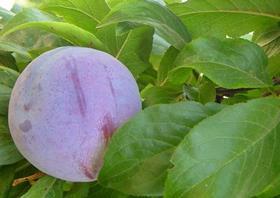
Spanish stonefruit producers have welcomed the news that they will be able to export peaches and plums to China from next season.
The news follows a meeting this week in Beijing between Carlos Cabanas, the secretary general of agriculture and food, and Zhang Qirong, vice minister of the General Administration of Quality Supervision, Inspection and Quarantine (AQSIQ), in which it was agreed that the protocol would be in place ahead of the start of the 2016 campaign.
With the export requirements practically finalised, all that remains is for the protocol to be officially signed by the Chinese authorities, Spain’s agriculture ministry said in a press release.
“We have obtained a commitment that authorisation to export peaches and plums will be ready in time for next season,” the ministry said.
Spain’s agrifood exports to China have risen sharply in the past five years, reaching €658m in 2014. Up to now, citrus has been one of the few fresh produce items that can be exported directly to mainland China. But few companies have taken the plunge due to the logistical, regulatory and phytosanitary hurdles they must overcome. Nevertheless, ongoing improvements in logistics and cold chain infrastructure mean the market is becoming more accessible every year.
While the Chinese market has been closed to Spanish stonefruit up to now, a growing number of companies have established regular programmes to Asia, particularly in Hong Kong, Singapore and Malaysia.
Seville-based SAT Royal recently entered the Asian market carrying out its first shipments of pluots to Hong Kong earlier this year. President José Gandía said the preference of Chinese consumers for very sweet, large sized fruit suited the company’s varietal offer. “We think there is an interesting market for exceptional fruit,” he told Fruitnet.
Campo y Tierra del Jerte has been exporting to Asia for four years and the region forms a key part of the company’s expansion strategy. Overseas sales manager Raúl Heras said much of its focus has been on developing varieties with sufficient quality and shelf life to reach distant markets.
“I believe we have demonstrated that we have no trouble meeting even the most stringent phytosanitary conditions imposed by the Asian markets,” Heras said.
'We have established a strong relationship with our Asian importers and look forward to developing programmes with them into mainland China.'



